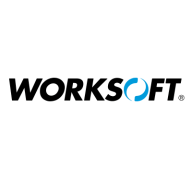

Worksoft Certify and Galen Framework are competing products in the automated testing category. Galen Framework seems to have the upper hand in features, while Worksoft Certify is more impressive in pricing and customer support.
Features: Worksoft Certify integrates seamlessly with enterprise applications, provides robust automation for complex business processes, and supports extensive automation efficiency. Galen Framework focuses on visual testing, offers layout validation, and suits design-oriented testing for front-end development.
Ease of Deployment and Customer Service: Worksoft Certify provides a comprehensive deployment model with extensive customer service and dedicated support for quick implementation. Galen Framework offers a developer-centric deployment style, catering to IT teams with technical expertise who are comfortable with self-service deployment and require minimal support.
Pricing and ROI: Worksoft Certify involves a higher setup cost but offers substantial ROI through its extensive automation capabilities and support. Galen Framework requires a lower initial investment, delivering high ROI for projects emphasizing front-end testing and cost-efficiency.

Layout testing seemed always a complex task. Galen Framework offers a simple solution: test location of objects relatively to each other on page. Using a special syntax and comprehensive rules you can describe any layout you can imagine.
Galen Framework runs well in Selenium Grid. You can set up your tests to run in a cloud like Sauce Labs or BrowserStack so that you can even test your responsive websites on different mobile devices. Galen can run multiple tests in parallel which is also a nice time saver.
Galen Framework is designed with responsivness in mind. It is easy to set up a test for different browser sizes. Galen just opens a browser, resizes it to a defined size and then tests the page according to specifications.
Worksoft Certify is the industry's first codeless automated testing system, created for non-technical people to test end-to-end business processes at an enterprise scale.
It was designed to test complicated processes spanning numerous apps and integrating into contemporary DevOps tool chains. Worksoft Certify manages dynamic input, process flows, and frequent variances in business processes with ease.
Worksoft Certify automates the testing of your exact business processes across all of your enterprise applications. This solution makes it simple for customers and suppliers to package a process with all of its related dependencies, sub-processes, record sets, record filters, layouts, and variables.
Worksoft Certify automates tests as effortlessly and quickly as the underlying applications permit, allowing you to evaluate business processes in record time with flawless dependability and consistency. Worksoft Certify speeds up test automation by utilizing a patented Object Action Framework, which effectively models the application under test as a set of pages containing GUI objects and test steps that perform actions on those objects.
Worksoft Certify Features
Worksoft Certify has many valuable key features. Some of the most useful ones include:
Worksoft Certify Benefits
There are many benefits to implementing Worksoft Certify. Some of the biggest advantages the solution offers include:
Reviews from Real Users
Jens N., Enterprise Architect SAP Solutions at a computer software company, writes, “As compared to other tools for test automation, what is very good in this tool is the ability to implement logic into the scripts without coding and learning a complex script language. It is comparable to defining formulas in Excel. It is pretty easy to learn how to make your scripts more intelligent and more flexible as per the situation.”
Aditya C., Sr Test Automation Architect at a tech services company, notes, “The most valuable features of Worksoft Certify are the way we can maintain the processes and sub-processes inside. We can immediately identify and replicate multiple objects in the application without having a major issue with it.”
We monitor all Functional Testing Tools reviews to prevent fraudulent reviews and keep review quality high. We do not post reviews by company employees or direct competitors. We validate each review for authenticity via cross-reference with LinkedIn, and personal follow-up with the reviewer when necessary.